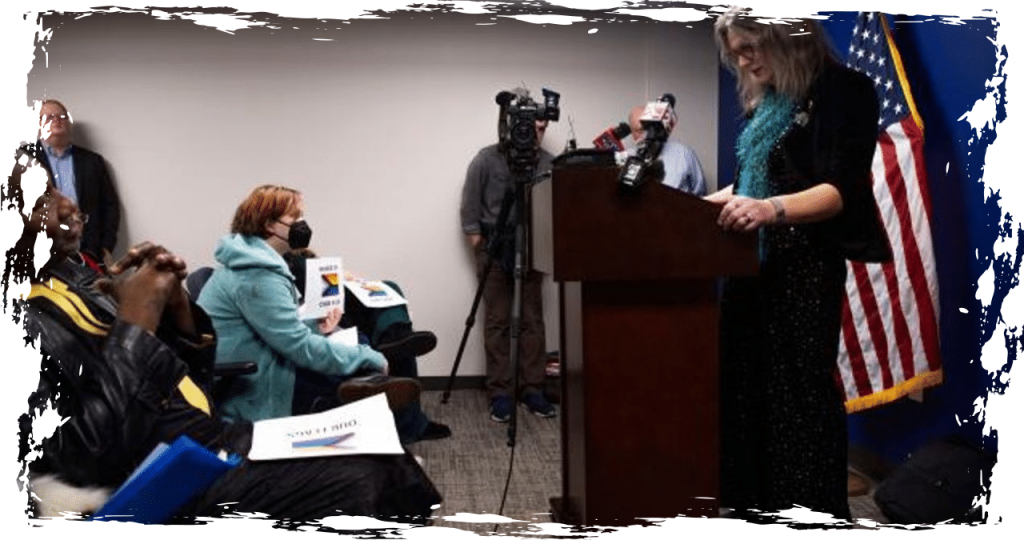Why does this law exist if not to revive a resolved matter, causing more division and dissatisfaction in a state that is struggling due to its political climate?
Guest columnist
-
- Ezra Wyrick is a writer and consultant from Tennessee who is focused on legislative accountability at the state level. He is also a contributing writer for Young Voices.
Tennessee Gov. Bill Lee recently enacted a law that grants public officials the right to decline officiating weddings.
When I first learned about the bill, I mistakenly thought it only affected ministers. However, upon closer inspection, I discovered that its scope is much broader. Instead of merely reaffirming the right of ministers to decline performing marriages, the legislation also permits public officials to discriminate when solemnizing marriages. In my view, this provision raises significant concerns regarding equal protection.
I have always been a staunch advocate for the freedom of individuals to freely associate with whomever they choose, or to refrain from associating altogether.
I strongly oppose discrimination, but I also believe in the importance of individual freedom in a free society. However, when it comes to public officials, the principle of equal protection must take precedence over the freedom of association. It is crucial that laws are applied without any form of discrimination and that public officials fulfill their lawful duties equally for all. Failing to do so would be a violation of the principle of equal protection.
“We’re Here” drag queens strive to uplift Tennessee, but the state presents itself as a desolate wasteland.
Lawmakers permitted unlawful discrimination
This Article Includes
The Supreme Court has consistently supported the equal application of the law, as seen in the cases of Brown v. Board of Education (1954) and Obergefell v. Hodges (2015). In Brown v. Board of Education, the Court declared that state laws that created separate schools for Black and white students were unconstitutional under the Equal Protection Clause. In Obergefell v. Hodges, the Court affirmed that same-sex couples have the fundamental right to marry, protected by both the Due Process Clause and the Equal Protection Clause of the Fourteenth Amendment.
Public officials who willingly pursue a position where they may compromise their personal ethics in the course of their responsibilities give up their freedom of association. They actively choose to be associated with the funds of every citizen within their jurisdiction; thus, they should be held accountable for carrying out their duties without any form of discrimination. If they are unable to do so, it is only fitting for them to step down from their role.
The Tennessee legislature should refrain from enacting laws that imply support for discrimination, especially when the issue has already been resolved in the courts. While the recently proposed law does not directly mention homosexuality as a basis for refusal, its wording intentionally leaves room for interpretation. It is clear that the intention behind such ambiguous legislation is to undermine the progress made in recognizing the rights of the LGBTQ+ community. It is important to note that Tennessee has been legally recognizing gay marriage since the landmark Obergefell decision, which invalidated the enforcement of a previous ban on same-sex marriage that was put in place in 1996.
It appears that certain members of our state legislature may have a fondness for the days when same-sex couples could be denied a license without facing any repercussions. This sentiment is evident when they pass deliberately vague laws, giving a subtle nod to officials who are hesitant to officiate marriages that go against their religious beliefs. These officials can now refuse to do so without violating state law, thanks to the Defense of Marriage Act.
New marriage law just stokes division
The truth is evident, regardless of the opinions held by certain politicians in Nashville: the majority of Americans in 2024 either support or are indifferent towards same-sex marriage, and this includes a significant majority of Tennesseans.
Why is this law being implemented if its sole purpose is not to revive an irrelevant matter, thus worsening the already fragmented and polarized political climate in the struggling state?
I strongly argue that this law contradicts the crucial constitutional principle of equal protection. It is inherently flawed both morally and legally, and I firmly believe that it should be invalidated by the court.
